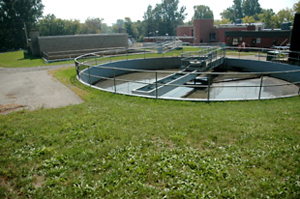What is a sanitary sewer?
The sanitary sewer system is a series of underground pipes that can carry sewage waste from kitchens, bathrooms, sinks or other plumbing components to the Town's wastewater treatment plant. If you live in town, your house is likely connected to the sanitary sewer system.
What is Sanitary Sewer Flushing?
Sewer flushing is an essential maintenance procedure carried out to ensure the efficient functioning of sewer systems. It involves the use of high-pressure water to clean and clear out debris, blockages, and buildup within the sewer pipes.
Why do we conduct Sanitary Sewer Flushing?
The process is necessary to remove any settled, accumulated material from the sewer system. Routine flushing helps reduce the potential for sanitary sewer backups or blockages, which can potentially cause damage to property.

